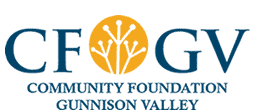Donor Advised Funds
About CFGVReap benefits of donor-advised funds while giving to causes you care about
By Bruce DeBoskey, Founder & President
The DeBoskey Group
Taken from 06/11/2014 Emailed Newsletter
In the philanthropic universe, there are many ways to give. The challenge becomes selecting the tool that best helps donors meet their unique philanthropic goals.
The fastest-growing tool in this arena is the widely acclaimed donor-advised fund. More than 200,000 DAFs have been created, with an estimated $50 billion now under management.
DAFs are 501(c)(3) philanthropic accounts established at a public charity. They allow donors to make lump-sum donations to the DAF and receive immediate tax deductions. At that point, the DAF legally controls the money. At any later time, donors can advise the DAF regarding which specific charities should receive donations. Generally, the DAF follows the donor’s advice about where donations should be made. DAFs offer the option of donating with complete anonymity.
Contributed funds are held in the DAF account and invested for growth and stability. Under present law, there is no requirement that the funds be contributed to another charity within any particular time frame. The tax advantages of DAF contributions can be considerable and should be explored with your tax adviser.
DAFs can be found at national sponsoring organizations that are often associated with financial investment firms, such as Fidelity Charitable or Schwab Charitable, or at independent entities like the National Philanthropic Trust or the American Endowment Foundation. DAFs are also housed at more than 700 community foundations across the United States, such as The Denver Foundation, Rose Community Foundation and Community First Foundation.
DAFs are not all alike. They differ from each other in ways that depend on the provider. Before opening a DAF, ask several questions:
How much does it take to open a DAF? To open an account, DAFs typically require a range of $5,000 to $25,000. The minimums for subsequent donations are in much smaller increments.
What kind of assets may I contribute? All DAFs accept cash or publicly traded securities. Some DAFs are now accepting other assets – such as restricted or privately held stock, real estate, life insurance proceeds and tangible personal property such as art or other collectibles.
To what kinds of nonprofits can I direct my money? DAFs usually accept donors’ advice to contribute any amount to any 501(c)(3) charity approved by the IRS. Some DAFs also honor requests for donations to international charities, scholarship funds and other charities.
Can my investment adviser manage my DAF investments? Not typically. However, some DAFs allow donors to select from different investment pools as a “home” for their funds. Above a certain high-dollar-threshold, DAFs are starting to allow donors to have their funds separately managed by their own investment advisers.
Can my DAF persist for future generations? DAFs differ in the number of subsequent generations to which their control may be passed.
Can my DAF make program- or mission-related investments? Some DAFs allow what are known as “impact investments” in their accounts, including low-interest loans to help nonprofits.
What fees are charged to manage my DAF? The fees for DAFs vary widely, with financial firms usually offering lower fees and community foundations charging more. The latter, however, often bring to the donor more community knowledge and philanthropy expertise.
Have the laws regarding DAFs changed? Today, there is no DAF payout requirement. However, proposals currently being discussed in Congress may result in a number of potential changes, including one requiring that contributions to DAFs be donated within five years.
Can my philanthropic adviser be involved with my DAF?
Although some philanthropic consulting services may be offered by the DAF, they are usually limited in scope. Most DAFs are happy to include your philanthropic adviser in any discussions about your unique granting strategy.
Establishing a DAF is a cost-effective way for donors to reap maximum tax benefits while supporting the causes they care about. Consider this popular option as a part of your overall philanthropic strategy.
